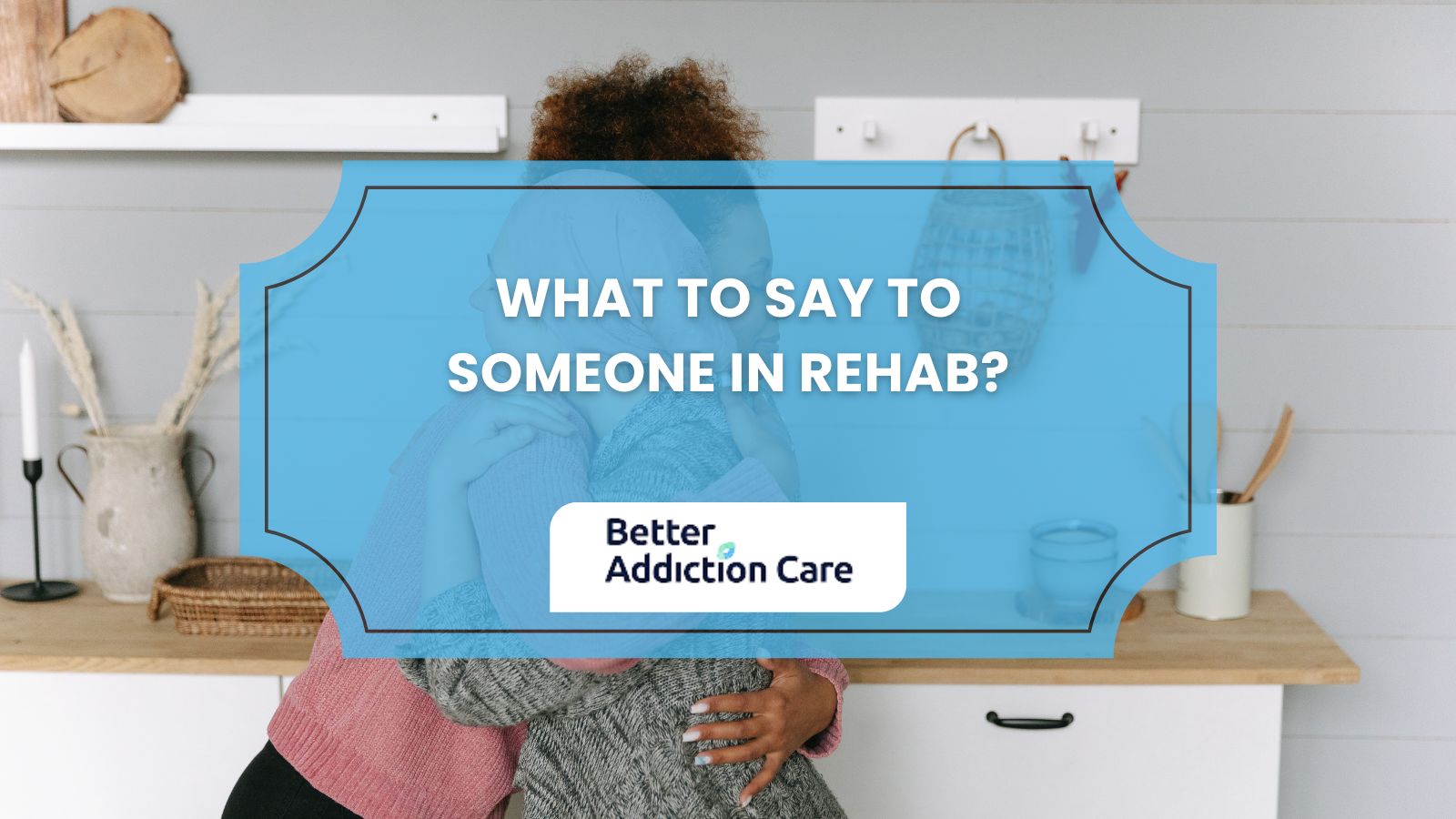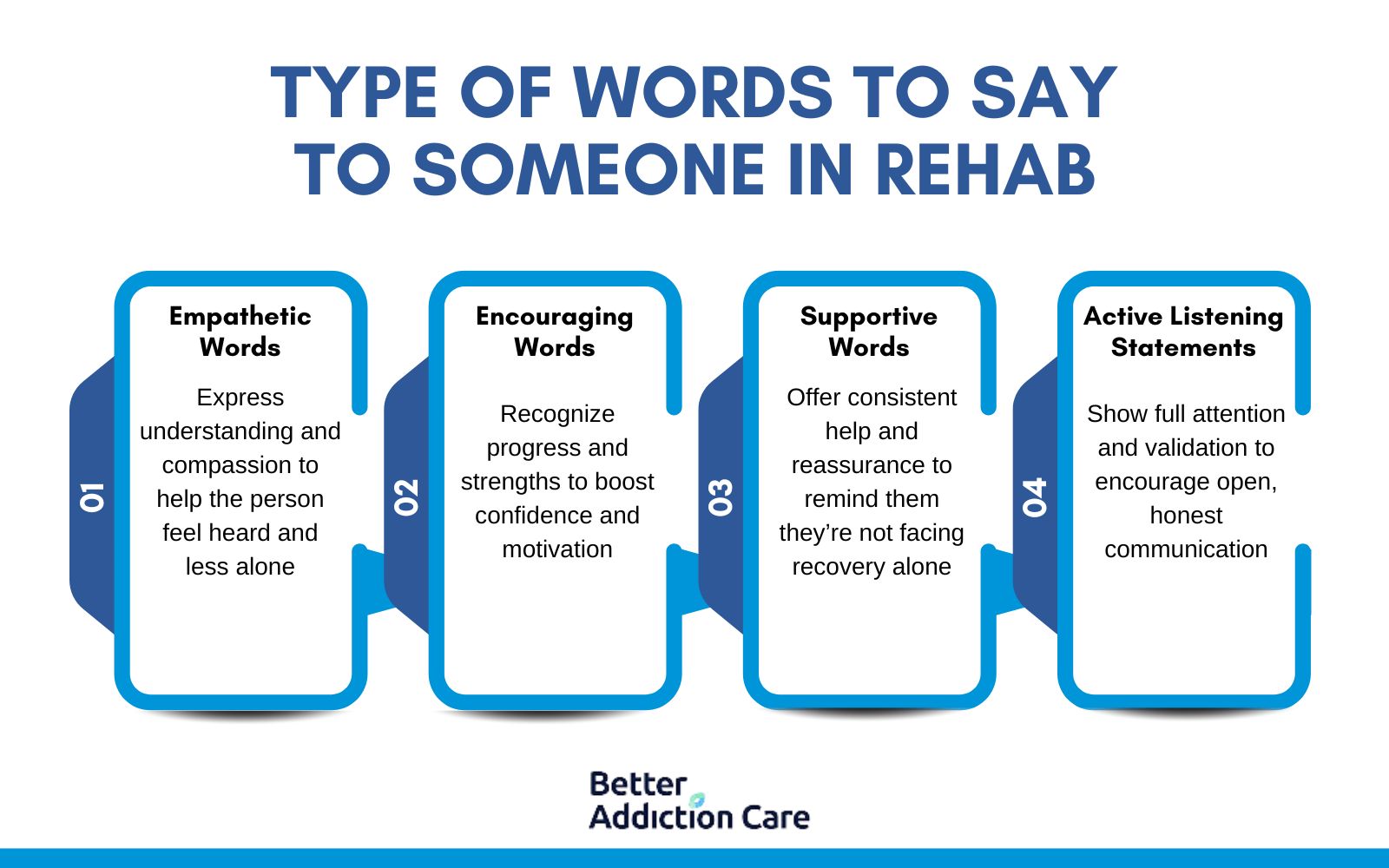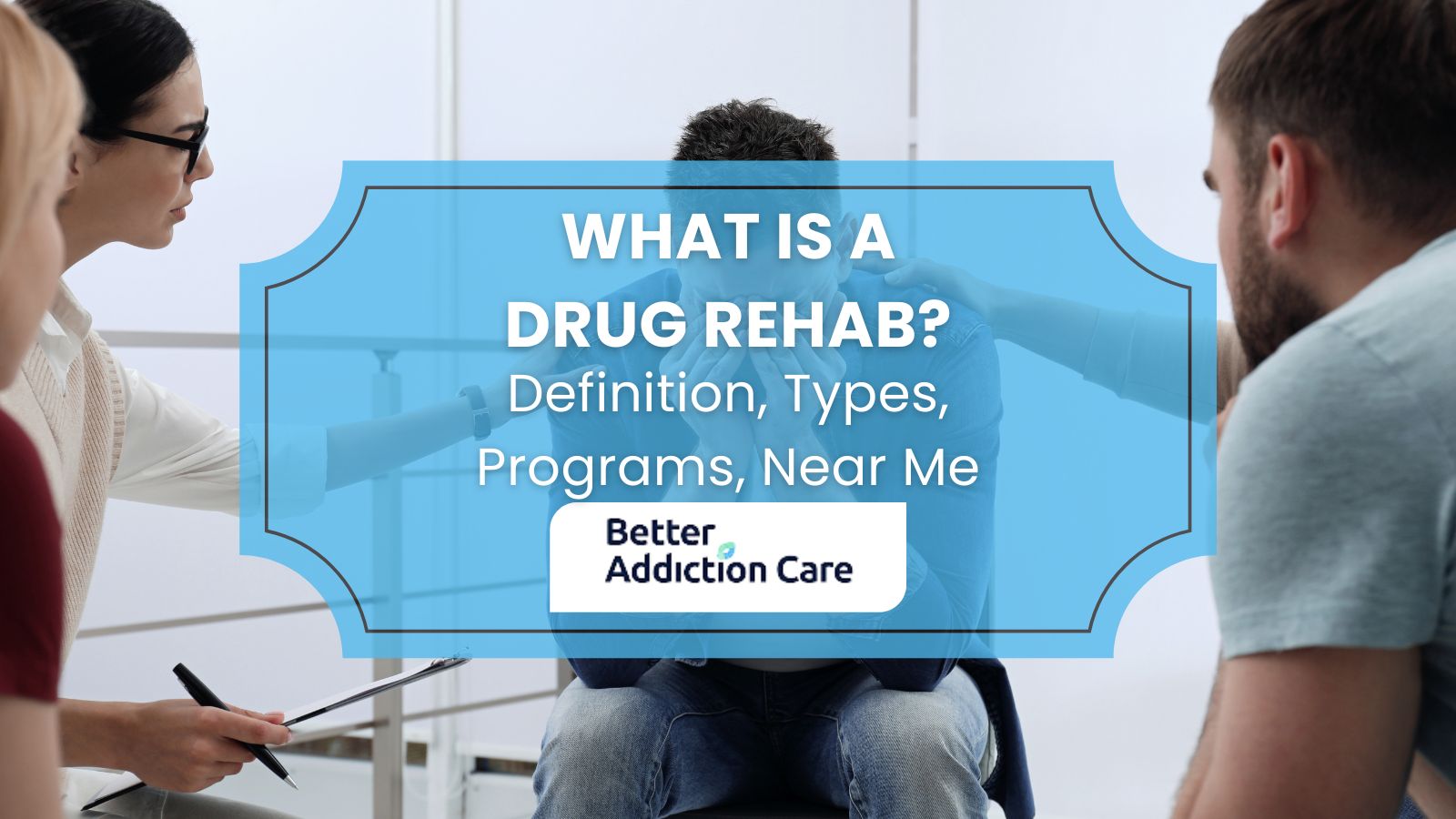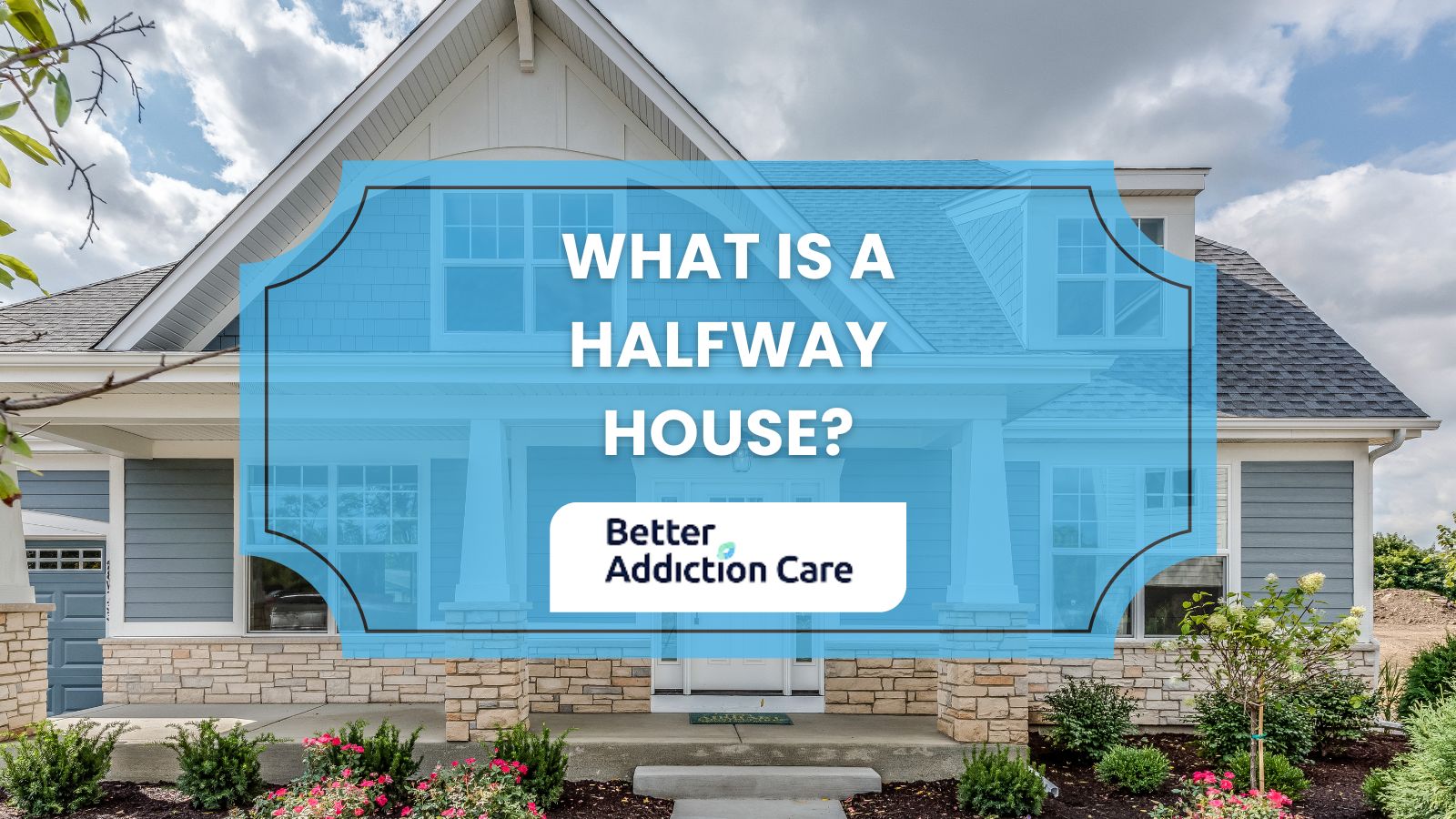What to Say to Someone in Rehab?
When speaking to someone in rehab, focus on expressing empathy, offering encouragement, providing support, and practicing active listening. Effective communication with individuals in rehabilitation requires compassionate, nonjudgmental language that validates their feelings and experiences.

Relationships and communication with family are critical factors in opioid addiction recovery. According to Flynn, P. M.’s 2003 study, ‘Recovery from opioid addiction in DATOS’, Among the 28% of opioid addiction patients who achieved recovery at the 5-year mark, family support was identified as one of the five primary factors contributing to their success, along with personal motivation, treatment experiences, religion/spirituality, and job/career.
Empathetic statements acknowledge struggles and remind them they're not alone. Recognizing progress boosts confidence and motivation. Active listening creates a safe space, reducing isolation. These approaches foster trust, strengthen relationships, and enhance mental health and recovery success.
What Type Of Words To Say To Someone In Rehab?

Empathetic words, encouraging words, supportive words, and active listening statements are the types of words to say to someone in rehab.
Empathetic words acknowledge the person's feelings and struggles without judgment, helping them feel understood and less alone. Encouraging words highlight their progress and strengths, boosting their motivation to continue recovery. Supportive words reassure them that they have a reliable network and aren't facing challenges alone. Active listening statements show you're fully engaged with what they're sharing, creating a safe space for them to express deeper thoughts and feelings, which is crucial for their long-term recovery and personal growth.
Words of Empathy
Empathy involves understanding and respecting a person's feelings and experiences. It shows genuine compassion by appreciating their worries without judgment, recognizing their struggles, and expressing care for their well-being. When you acknowledge how they feel and what they've been through, it helps them feel less alone and more understood.
Kind words greatly boost mental health and confidence during recovery. Many in treatment face anxiety, embarrassment, and guilt. Demonstrating understanding makes their problems feel normal, encouraging open discussion and fostering a supportive environment. This approach also enhances self-esteem and motivates continued therapy
Here are some examples of empathetic statements that are spoken to someone going to rehab and how they help:
|
Statement |
Ways it Helps |
Negative Feeling Eased |
|
"I understand this is challenging for you." |
- Acknowledges the struggle. - Validates the experience. |
Feeling misunderstood. |
|
"I'm here for you, no matter what." |
- Reassures consistent support. - Reassures companionship. |
Feeling alone. |
|
"It’s okay to feel upset; your feelings are valid." |
- Validates emotions. - Make people feel understood. |
Feeling invalidated. |
|
"I can see that you're going through a lot right now." |
- Shows awareness of the struggles. |
Feeling ignored. |
|
"I'm sorry you're having to go through this." |
- Expresses sorrow for their pain. |
Feeling like nobody understands. |
|
"It must be tough to deal with all of this." |
- Acknowledges the difficulty of the situation. |
Feeling overwhelmed. |
|
"You are so strong to be facing this." |
- Recognizes the strength. - Provides encouragement. |
Feeling weak. |
|
"I wish I could take away your pain." |
- Shows deep empathy. - Shows a desire to help alleviate suffering. |
Feeling unsupported. |
|
"It's normal to have bad days, and talking about them is okay." |
- Normalizes the experience. - Encourages sharing. |
Feeling ashamed or guilty. |
|
"I'm here to support you, whatever you need." |
- Offers unconditional support. - Offers assistance. |
Feeling unsupported. |
Words of Encouragement
Encouraging words acknowledge a person's accomplishments, inspiring them to value their efforts and strengths, no matter how small. Recognizing their achievements and dedication lifts their spirits and motivates continued progress in recovery.
Such words boost self-confidence, helping individuals overcome obstacles and pursue goals with determination. Support fosters optimism, which is essential for navigating rehabilitation challenges. When someone receives words of encouragement, it provides immediate motivation and strengthens long-term self-esteem. With support, individuals view their growth positively and set attainable goals.
Here are examples of encouragement statements for someone going to rehab and how these statements help:
|
Statement |
Ways it Helps |
Negative Feeling Eased |
|
"You've made so much progress." |
- Highlights achievements. - Reinforces positive behavior. |
Feeling unaccomplished. |
|
"I believe in your strength to overcome this." |
- Boosts confidence. - Reinforces self-belief. |
Feeling incapable. |
|
"Keep going; you're doing great." |
- Provides motivation. |
Feeling discouraged. |
|
"You have the power to change your future." |
- Empowers to see potential. |
Feeling hopeless. |
|
"Every step you take is a step closer to recovery." |
- Encourages persistence. - Emphasizes progress. |
Feeling frustrated. |
|
"You are capable of amazing things." |
- Reinforces abilities. - Reinforce potential. |
Feeling inadequate. |
|
"Don't give up; you have come so far." |
- Reminds the progress. |
Feeling tempted to give up. |
|
"Your hard work is paying off." |
- Validates efforts. - Recognize outcomes. |
Feeling unrecognized. |
|
"You are stronger than you think." |
- Challenges self-doubt. - Reinforces inner strength. |
Feeling weak or unsure. |
|
"Your determination is inspiring." |
- Provides external validation. - Boosts morale. |
Feeling unmotivated. |
Words of Support
When people in recovery hear supportive words, they perceive consistent assistance from others. These words soothe by reminding them of a reliable support network and that they are not alone in their journey. Supporting someone involves addressing practical and emotional concerns and making them feel heard. Encouraging support networks promote healing, strengthen personal relationships, and foster a sense of community.
Here are examples of support words for someone going to rehab and how these words help:
|
Statement |
Ways it Helps |
Negative Feeling Eased |
|
"Let me know how I can help you today." |
- Offers practical assistance. - Shows willingness to support. |
Feeling overwhelmed. |
|
"We will get through this together." |
- Emphasizes solidarity. - Emphasizes partnership. |
Feeling isolated. |
|
"You're not alone in this." |
- Reinforces the idea of having a support system. |
Feeling unsupported. |
|
"I'm just a call away whenever you need me." |
- Provides reassurance of immediate availability. |
Feeling anxious. |
|
"It's okay to ask for help when you need it." |
- Normalizes seeking. - Reduces stigma. |
Feeling ashamed. |
|
"You can count on me to be there for you." |
- Builds trust and reliability. |
Feeling distrustful. |
|
"I believe in you and your recovery." |
- Boosts confidence. - Reassures belief in their efforts. |
Feeling doubtful. |
|
"Your well-being is important to me." |
- Shows care and concern. - Reinforces value. |
Feeling unimportant. |
|
"We can face these challenges together." |
- Promotes a team approach. |
Feeling overwhelmed. |
Words of Active Listening
Active listening demonstrates full involvement and attention to someone in rehab. These statements show hearing their words and understanding their emotions and experiences. Reflecting on their words and providing respectful feedback creates a safe environment that encourages openness and deeper sharing.
Active listening reduces loneliness by affirming that their situation and thoughts matter. This support encourages honest communication, which strengthens long-term recovery and personal growth.
Here are some examples of active listening statements and how they help:
|
Statement |
Ways it Helps |
Negative Feeling Eased |
|
"I hear you, and I understand." |
- Validate feelings. - Shows understanding. |
Feeling misunderstood. |
|
"Tell me more about how you're feeling." |
- Encourages to share deep feelings. |
Feeling ignored. |
|
"It sounds like you're really going through a lot." |
- Reflects experiences. - Shows empathy. |
Feeling unnoticed. |
|
"What I'm hearing is that you're feeling..." |
- Help to clarify emotions. - Ensures accurate understanding. |
Feeling confused. |
|
"That must have been really difficult for you." |
- Acknowledges struggles. |
Feeling unsupported. |
|
"I'm here to listen whenever you need to talk." |
- Provides assurance of ongoing support. |
Feeling isolated. |
|
"I appreciate you sharing this with me." |
- Shows gratitude for openness. - Reinforces trust. |
Feeling undervalued. |
|
"It sounds like you're saying that..." |
- Confirms the message. |
Feeling dismissed. |
|
"How did that make you feel?" |
- Validates emotions. |
Feeling invalidated. |
Can Inspiring Quotes help with drug and alcohol Rehab?
Inspiring quotes do help with drug and alcohol rehab by offering motivation and support. Quotes provide solace and inspiration during the recovery journey, especially on difficult days. People stay motivated, and quotes remind them that recovery is possible.
What Communication Techniques Contribute To Successful Addiction Treatment?
Active listening, empathetic responses, and non-judgmental language as communication techniques contribute to successful addiction treatment. Effective communication techniques are vital for supporting individuals through addiction recovery. By practicing these communication methods, family members and friends create a supportive environment that encourages honesty, vulnerability, and continued progress towards a successful addiction treatment.
Other important techniques include setting healthy boundaries, offering specific rather than general support, validating feelings without enabling negative behaviors, and maintaining consistent, clear communication throughout the recovery journey. These skills not only strengthen relationships but also significantly improve treatment outcomes by fostering trust and reducing feelings of isolation.
How Do I Find A Local Drug Or Alcohol Rehabilitation Center Near Me?
To find a local rehabilitation center, individuals utilize multiple resources. Online directories list treatment facilities by location, and the Substance Abuse and Mental Health Services Administration (SAMHSA) offers a free treatment locator service with information about centers nationwide.
Insurance providers maintain lists of in-network rehabilitation facilities. Contacting the insurance company reveals coverage options and reduces out-of-pocket expenses.
Medical professionals serve as valuable resources for locating treatment. Primary care physicians, therapists, and psychiatrists know reputable rehabilitation centers in the area and provide referrals based on specific needs.
Support groups like Alcoholics Anonymous and Narcotics Anonymous connect individuals with local resources and recommendations from members with firsthand experience. Many communities operate addiction helplines that connect callers to nearby treatment centers that address specific recovery needs.
Better Addiction Care offers comprehensive listings of drug and alcohol rehab facilities across the country, making it easier to find appropriate treatment options in your area. Community health departments maintain information about local treatment options, including public and sliding-scale facilities for those with financial concerns.
Related Articles
Treatment Centers in New Jersey








